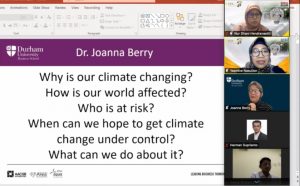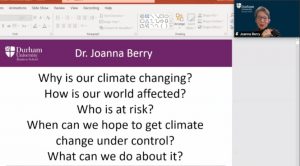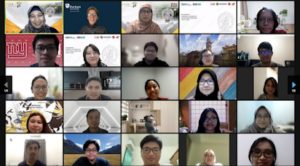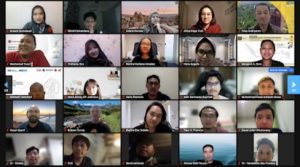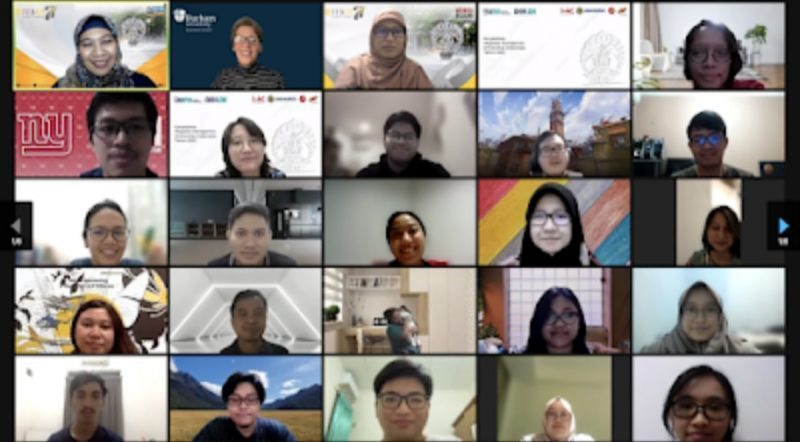
Guest Lecture Business and Climate Change, “Business and Climate Change: Why and How to Achieve The Net Zero”
DEPOK – (3/11/2021) On Wednesday, Faculty of Economics and Business organized a Guest Lecture on Business and Innovation, with a topic “Business and Climate Change: Why and How to Achieve The Net Zero”. Dr. Joanna Berry, Associate Professor of Entrepreneurship and Director at the Durham University Business School, delivered the lecture for Business Innovation and Entrepreneurship at the Durham Energy Institute Durham University, moderated by Dr. Yasmine Nasution, Senior Lecturer at Faculty of Economics and Business, Universitas Indonesia.
Dr. Joanna presented issues on the climate change that does not only about rising temperatures, but other aspects and how these aspects are interconnected. The rising temperature should be kept under 1.5 degrees Celsius to avoid climate disaster, such as flood, drought, and wildfire that will affect further human activities, including living areas and agriculture. She also presented the causes and impacts, such as land-based ice melt, the emission of methane gas coming from animal (cow) farming, and unsustainable energy fuels. She explained that there should be balance between, people, profit and planet as part of society and the ecology, for a strong sustainable economy. The message is clear, that business should not only concern about profit, but people and planet from the very beginning.
Dr. Joanna also explained that the ones at risk are people who live in vulnerable areas, which apparently contributed the least to the carbon emission. In her graph she showed, how emission is positively correlated with income level, indicating that there is gap for those who are at risk. It can create climate refugees for those who are affected by the calamities of the climate change issues. People living in the urban areas will also be affected due to the increase of the temperature.
What we can do are shifting to renewable energy, reducing the consumption of meat, switching to electric vehicles, changing our habit of buy-throw, reducing subsidies for fossil fuels and redirecting it to the renewable energy, and developing sustainable agriculture to ensure the balance between lands for holding the emission and providing food for the society. (hjtp)
